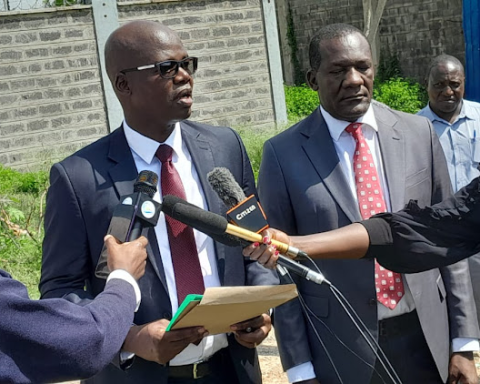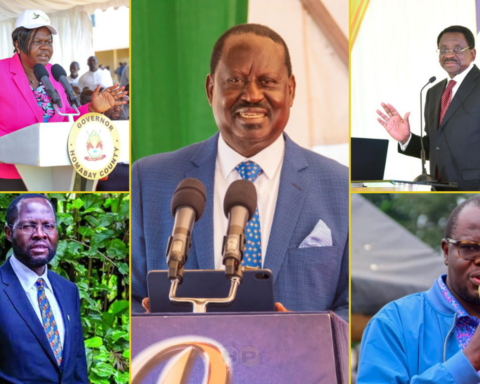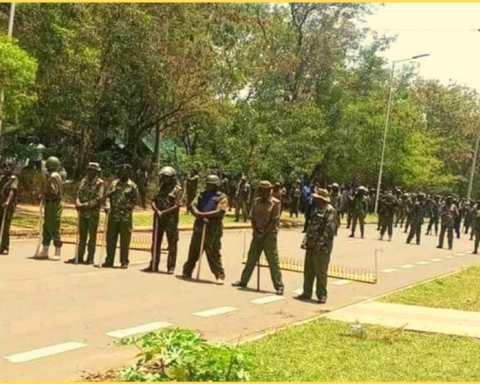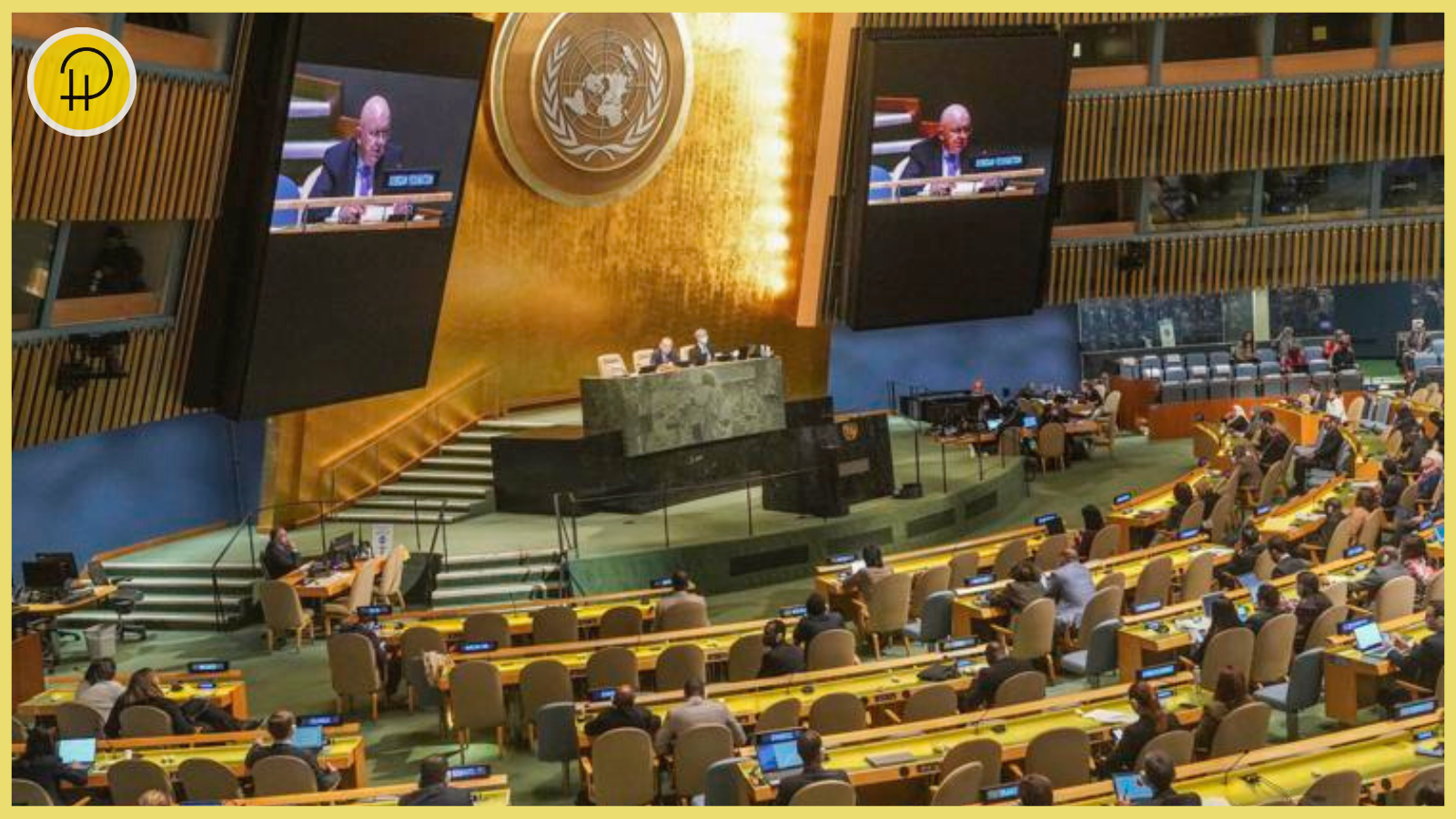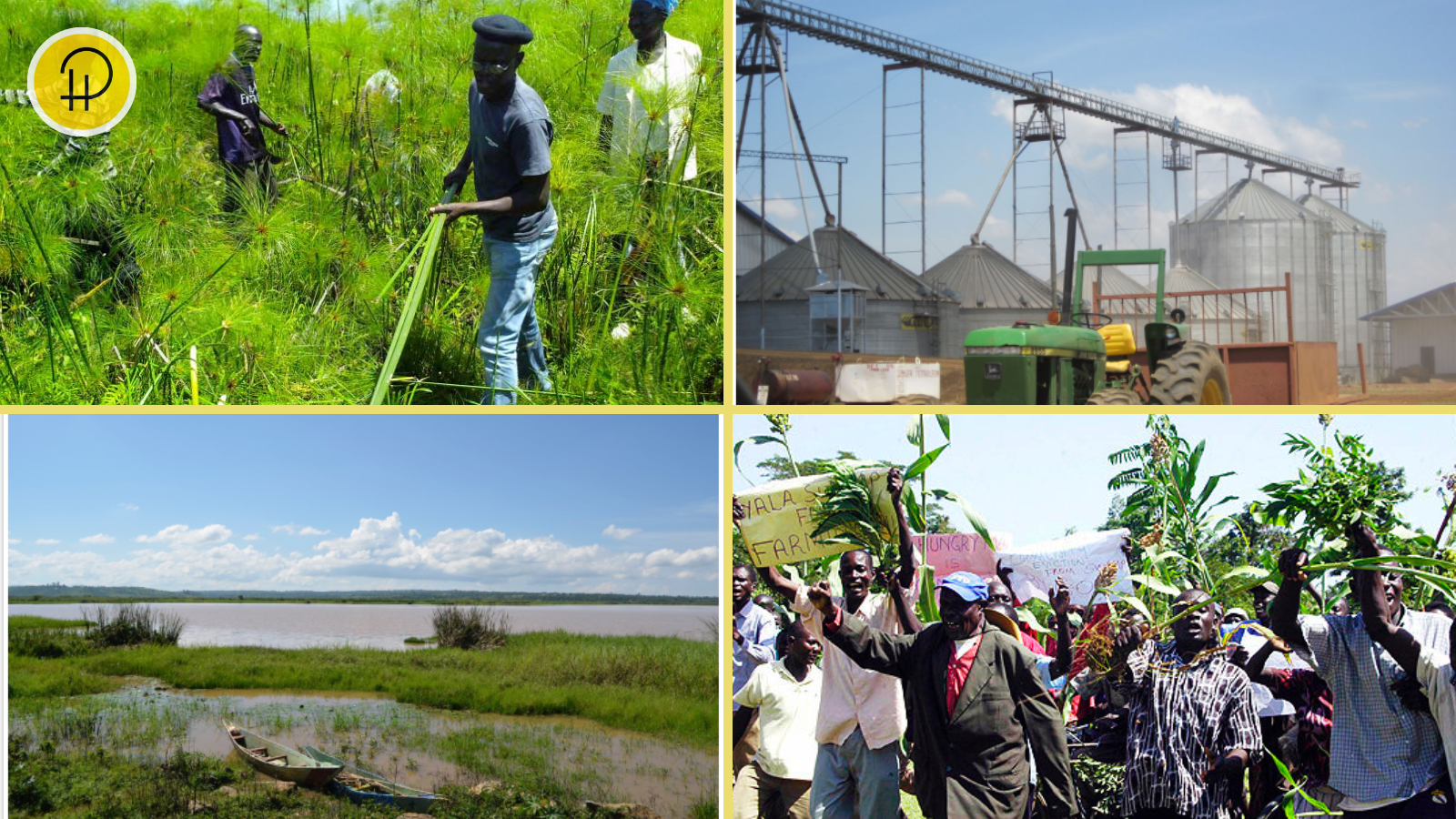We are getting there but at some point our country will come to terms with the fact that nature and its powers are the biggest gifts for our country and its peoples.
Look at Kano plains, Nyando river tail diving into Kisumu city just off the backs of Kericho grand municipality. How can it get better than that for economic development?
Nyando river and the Kano plains can produce electricity and energy for the region and feed everybody in Western Kenya. They have water and land and people who have lived there all their lives. What more can anybody want?
Yes they can grow rice. But they can also grow a ton of other food products and set up food processing facilities in the area which has direct access to Kisumu City and its international airport.
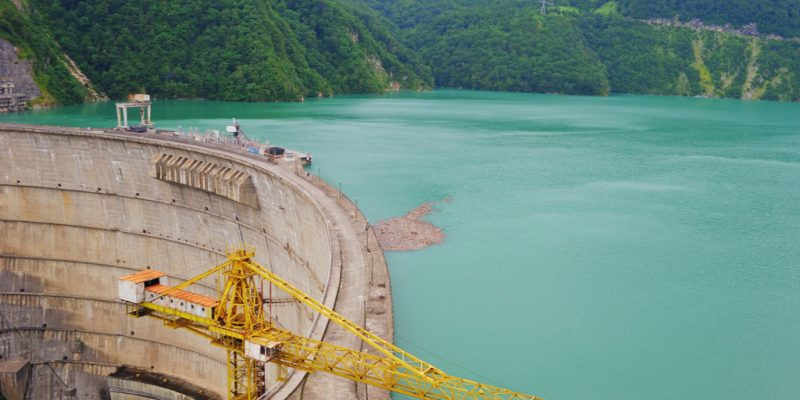
The problem in Nyando and the famous Kano plains is that they are stuck in medieval times forever. The rivers swell with the rains mostly in April/May and bury everything under water including the farms. It takes the rest of the year for the water to get its way to the lake and it starts all over again.

The starting point here is to build the Nyando River Water Dam which has been in the books for the last ten or so years with a budget of Shs. 20 billion. Nothing has been done there. A project of that magnitude needs a coordinated plan from the national government working with the Kisumu County government to go look for international funding to complement what the government is providing.
They cannot just be stuck with Chinese loans and in this case different Chinese Construction companies are fighting about who got the contract to build the Koru-Soin dam and nothing is being done on the project.
Hopefully this new initiative started in 2020 will finally bear fruits to release the immense wealth being buried in these floods every year in the Kano Plains and Nyando area.
KENYA: NWHSA issues new tender for Koru-Soin Multi-Purpose Dam
This is a place with the possibilities of magnificent development in so many areas or catastrophic disaster every year. Kenya has chosen the disaster route for 60 years of our national independence. It is a shame. Here is what we know from media reports and realities on the ground as Kenyans in the area live with that.
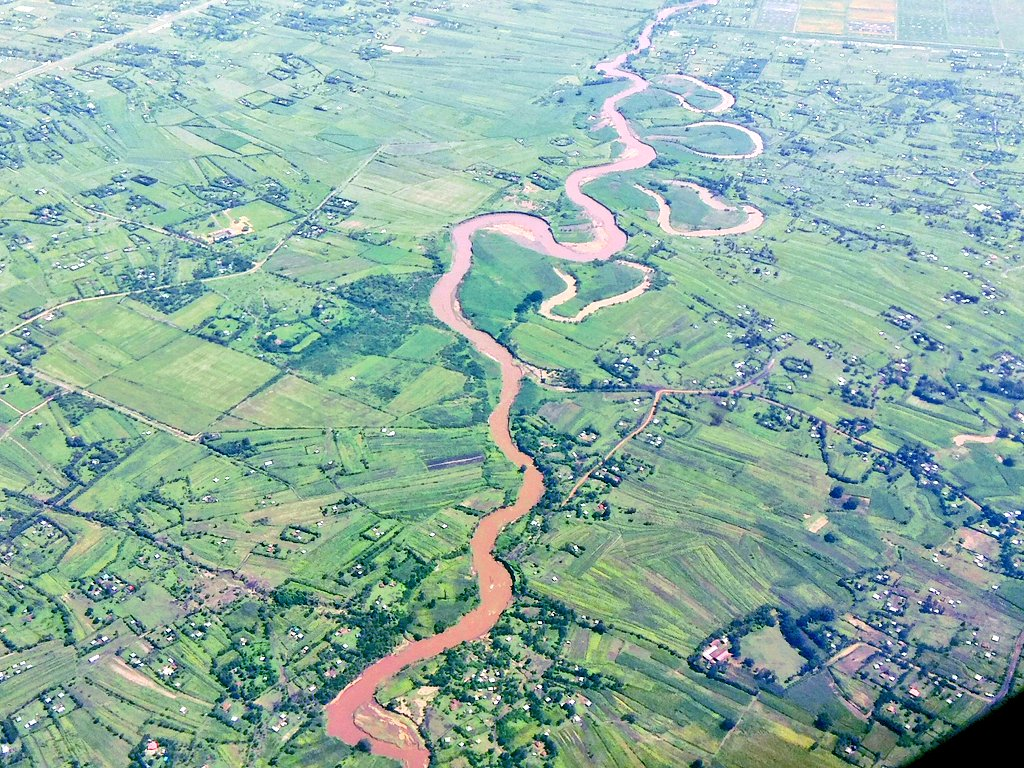

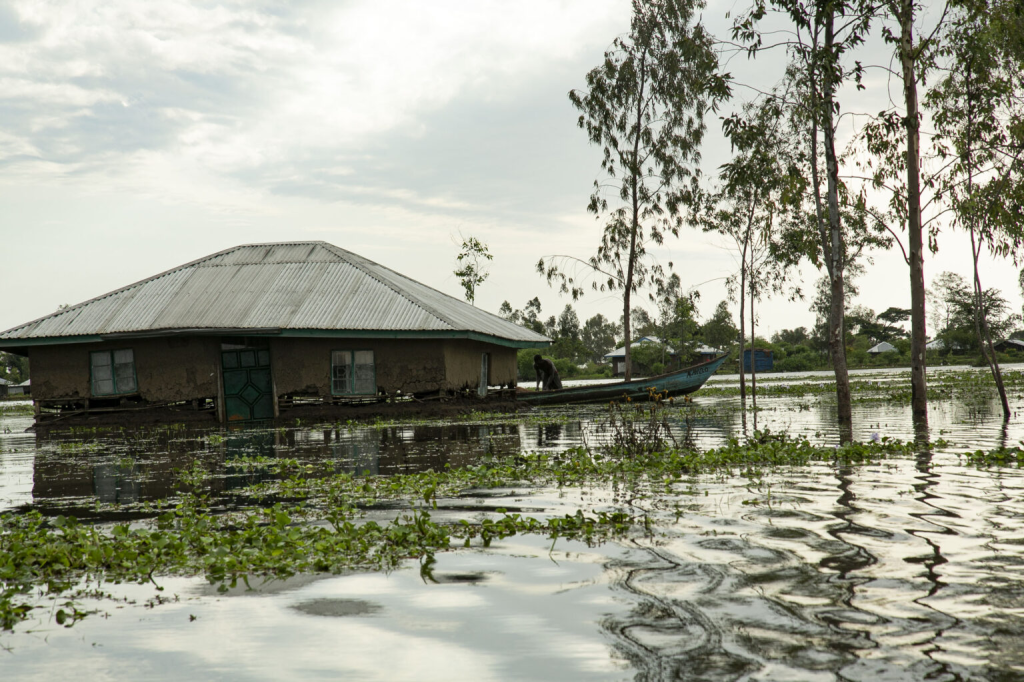
The people who live there say nobody can navigate the river because it goes downhill from Mau Forest in Rift Valley.
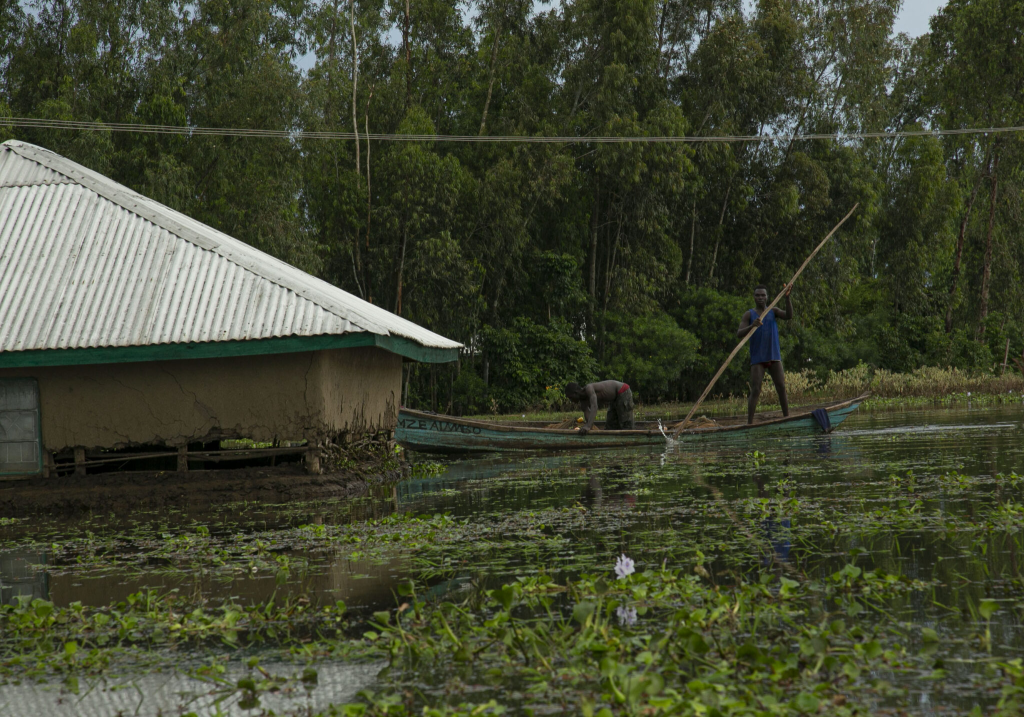
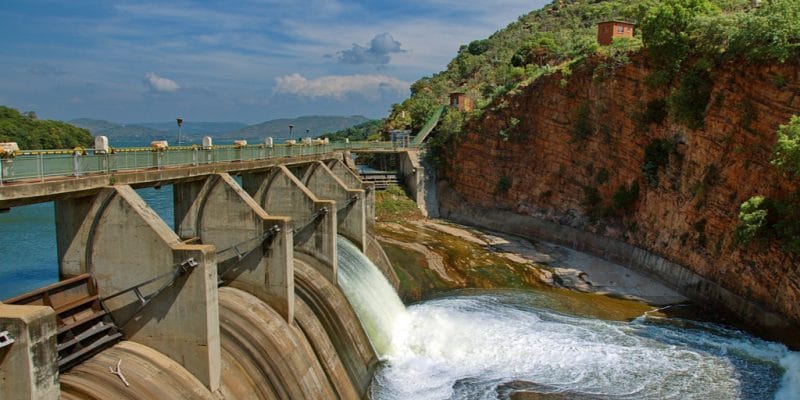
The National Water Harvesting and Storage Authority (NWHSA) has just re-launched the tender for the construction of the Koru-Soin multi-purpose dam in Kisumu County in western Kenya. The local government had planned to start construction in September 2020.
The start of construction of the Koru-Soin Multipurpose Dam will not take place in September 2020 as expected by the Kisumu County Government. A new call for tenders for the construction of the reservoir has just been launched by the National Water Harvesting and Storage Authority (NWHSA). It will be completed within one month, on September 18, 2020.
The recent call for proposals was reportedly unsuccessful, with most bidders failing to send “the relevant documents to support their bids, while the few others that did reach the threshold offered a price well above that which the Kenyan government has allocated for the implementation of the project”. The construction of the Koru-Soin multi-purpose dam will require an investment of 25 billion Kenyan shillings, or $231.4 million.
The dam will be built on the Nyando River, upstream of the town of Muhoroni, in Kisumu County, western Kenya. The future dam will supply water to the population, irrigate the plantations and operate the 2.5 MW hydroelectric power plant.
For the NWHSA’s new call for expressions of interest, “bidders must accompany their applications with a bid guarantee of approximately $1.9 million from a reputable bank approved by the Central Bank of Kenya,” said Sharon Obonyo, acting chief executive officer of the National Water Harvesting and Storage Authority (NWHSA).
In addition, foreign companies participating in the bidding process must provide a written commitment on paper, signed by a person with power of attorney, that if their company is successful, they will be required to source at least 40 percent of their requirements from Kenyan suppliers for the construction of the Koru-Soin Dam.
This would be a project to provide electricity to the whole area and to Kisumu City, provide water for sustainable farming, get rid of the annual flooding which kills people and destroys the land. Kisumu Governor Prof. Ayang’ Nyong’o just got a big block of an investment fund to improve agriculture in the area and it would be a great idea to put some of that investment in the Nyando area while also working with the national government to get things going.
With a plan combining electricity, providing food, mitigating disastrous weather conditions and something that could change the lives of so many people for the better, you have all the ingredients to obtain significant international funding for the project if it is well thought out and planned accordingly. You have the two things that Kenyans need the most to develop. You have plenty of water and fertile soil. All you need is a workable plan of action.
Not far from the Nyando chaos we have the forever collapsed and collapsing Muhoroni Sugar factory.

Managers brought to resuscitate Muhoroni Sugar Company misappropriated billions of shillings allocated to revive the company and plundered its resources in the two decades it was placed under receivership, leaving the firm in a worse position.
A special audit by the Office of the Auditor General has revealed massive theft of sugar from the factory, irregular procurement and corruption in staffing as well as misuse of funds over the last seven years, with at least Sh4 billion not clearly accounted for.
The report tabled in parliament found Sh1.7 billion in sales were not traceable in the company finances, the expenditure of the Sh447 million borrowed for factory upgrades remained in doubt and Sh1.4 billion worth of sugar was sold irregularly to suspicious distributors most of whom did not exist in the list of those prequalified to buy sugar from the factory. More millions were lost in payroll fraud, and loss of company assets, according to the audit tabled by Auditor-General Nancy Gathungu.
“The Special Audit established that Financial Operations at Muhoroni Sugar Company (MUSCO) for the period under review were characterized by inefficient and ineffective financial, procurement, and human resource practices. Consequently, the company’s financial health has significantly deteriorated and the existing machinery have worn out due to inefficient and ineffective maintenance coupled with unqualified technical staff,” Ms Gathungu wrote in the report.
The Sh447 million given by the government to repair the factory in 2016 was for example largely misappropriated and has not been repaid years later, gathering more interest beyond the 24 months it was allowed for repayment to the Agriculture and Food Authority (AFA).
The two managers, Asa Okoth and Fredrick Kebenei, who were forcibly evicted by employees in 2018 and returned to AFA where they work to date were found to have irregularly mixed the factory repair funds with other funds of the company in a move that allowed easy misappropriation and removed audit trails on the loan, which left the factory machinery worse than it was according to the audit.
“Whereas improvement was expected after the factory maintenance, the quantity of sugar produced decreased from 29,362 metric tonnes in 2016 to the lowest recorded of 15,876 metric tonnes in May 2018, according to the managers’ handover reports,” the auditors wrote.
The managers never paid taxes and the bill had hit Sh1.1 billion when they left and a demand notice from KRA together with an agency notice on the banks hung over, which had to suspend operations in May 2018 and only resumed in September when a new set of receiver managers were called in.
The list of distributors who largely benefited from the cheap and sometimes free sugar consisted of staff members, a conflict of interest the auditor also found in the list of farmers. So skewed were the sales in sugar that in some cases, auditors sampled 13,995 bags that were loaded onto trucks and delivered to customers after and the orders were later canceled, essentially wiping them out of the system which also showed that sugar worth more than Sh10 million had been supplied more than what had been ordered.
The distributors who had picked sugar worth Sh68.3 million in credit between 2013 and 2017 had not paid more than Sh34.8 million. The documents showing the credit sales were no longer available, according to the company’s acting Sales and Marketing Manager Evaline Ruto.
Three customers, according to the sampled sales, had ordered 16 bags of sugar and got 116 instead with one who ordered just two bags getting 98 bags.
The several years of mismanagement has seen several managers sent packing by workers, the latest being June 2019.
The seven are factory manager Walter Odum, general manager Nashon Osieko, Rachael Mayaka (human resources) as well as accountant Raphael Muyonga who continued to draw salaries which had hit Sh6.3 million in the first six months they were out of office.

Muhoroni Sugar factory and business that has sustained the economy of the area for decades is now dead and nobody knows what is coming next. It is the same story for sugar companies all over Kenya. Something has to be done to sort this out without using the old failed methods and it should be done very fast. Kenyans are counting on that. Like right now.
In the economy with the new government, we have very serious issues to sort out. Ruto is talking about Hustler Fund. That is fair and good. But the same people gave Kenyans, Youth For Kenya Fund, Uwezo Fund, and a whole ton of them run by their then political limelight folks. They have achieved nothing up to now. So just recycle something else.
The real economic dynamic is to figure out how we can use our abundant local resources to enhance the productivity of basic food and products that Kenyans need.
That comes to the ground and the possibilities are endless but we have to go there and get things done.
Adongo Ogony is a Human Rights Activist and a Writer who lives in Toronto, Canada


